Ensemble officially launched on August 14, 2020, but we'd been working on it quietly for months. The timelines of that doomed year are now a blur, but I do remember an unsettling mix of uncertainty and, surprisingly, clarity. I had lost my job (the company folded in April; I was extremely lucky to receive a good redundancy package. On this occasion, not the next one), and while I was stressed and worried about income and y'know, a then unknown global pandemic, I also sensed possibility. If no one knew what was going to happen, why not try something new?
There was something freeing about that time. Ensemble could only have launched then: built on our experience, an embrace of chaos, a tiny bit of blind faith and maybe delusion, and a sixth sense about where the zeitgeist was heading.
Five years on, I can see that similar spirit in the wave of new local businesses that launched around that time. Many had been in the works long before, but choosing to hit 'go' in 2020 required a special kind of courage. Not all have survived (the economy! etc etc), but plenty have become well-established, well-loved fixtures that feel like they’ve been with us forever.
As Ensemble turns five, I wanted to check in with some of our fellow founders from the class of 2020. What have they learnt? What's changed? What lies ahead? I asked five businesses across fashion, beauty, wellbeing, booze and hospitality – sectors that have changed rapidly that time – to answer five questions. A small snapshot of then, now and what’s next.
Josh and Helen Emett, owners of restaurant Onslow (and Gilt and The Oyster Inn)
Onslow officially opened on October 15 2020
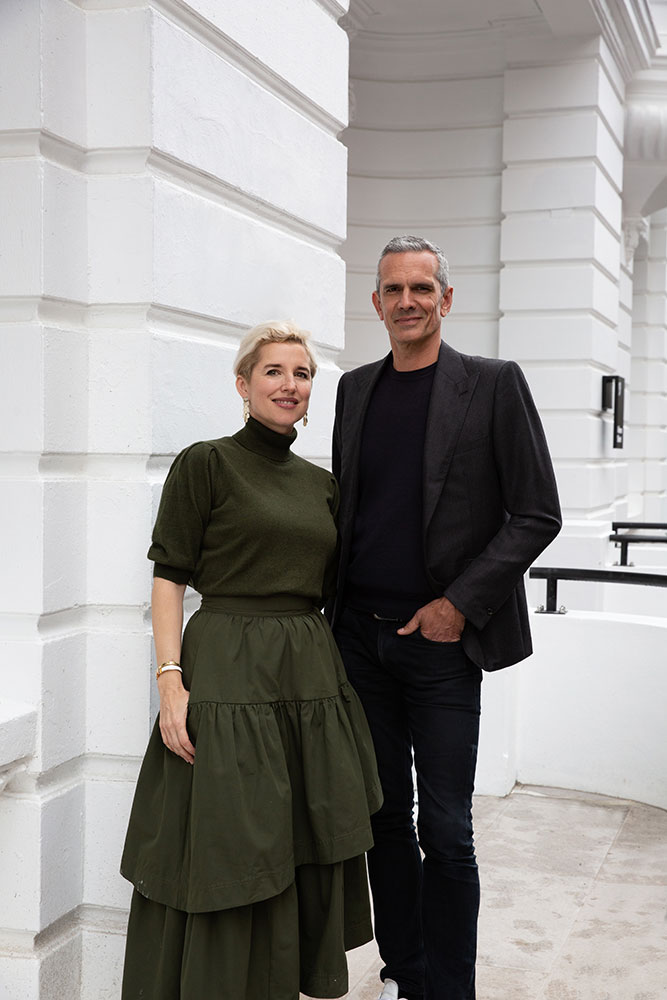
2020 was a year of chaos and genuine uncertainty. Why launch then?
Onslow had been years in the making, and by that point, we were already fully committed, so in many ways, there was no turning back. The build was well underway, and Helen and I had made the decision to go out on our own and open our first restaurant in Auckland. It was a huge leap, but one we were ready for.
What were some of the positives of launching a business in that time of crisis?
Surprisingly, we approached the lockdown in a positive way. It gave us the chance to sharpen every part of the business. We refined our training, overhauled our systems, and used the time to work with an online coach. When we reopened after the lockdowns, there was a real sense of appreciation from guests, people were reminded of how much they loved dining out. That support gave us the fuel we needed in those early days.
What are some of the biggest challenges and lessons you’ve learnt over those five years?
One of the biggest lessons has been just how important it is to really listen to our guests. Our regulars in particular have helped shape who we are. Their feedback, whether glowing or constructive, has pushed us to refine, evolve, and never sit still. That kind of insight is invaluable. It keeps you grounded and focused on what matters.
At the same time, you can’t ignore the financial realities. Hospitality is a tight-margin business, and there’s no room for inefficiencies. Whether it’s wages, food costs, wastage, or operations. You’ve got to stay across the numbers and keep running smarter. Complacency just isn’t an option.
If you could go back and give your 2020 self one piece of advice before launching, what would it be?
Be patient. You're in for a long and demanding ride. But also trust the process – the work will pay off.
Looking back on 2020 through to 2025, how have things changed? Where are you at right now, and looking ahead for another five years?
It’s been a real journey, definitely not without its ups and downs. The last 18 months, in particular, have been the toughest, but we’re still standing, and we’ve built something that means a lot, both to us and to our guests.
We’re incredibly proud of what we’ve created at Onslow. Over the past five years, it’s become a favourite for so many. We still hear that it’s considered one of the best restaurants in New Zealand, and the feedback continues to be amazing. It feels like part of the fabric of Auckland now, and in many ways, just as popular today as when we first opened.
Looking ahead, it’s about staying agile, continuing to evolve, and holding onto the energy and ambition we started with. We’ve learnt to be resilient, to adapt quickly, and to keep pushing forward and those lessons will shape the next five years, too.
Chloe Julian, founder of Videris Lingerie
Videris launched on September 17, 2020 (“I actually chose that date with the help of an astrologer, I wanted the stars to align, quite literally. Which probably says a lot about how I make decisions, part instinct, part intention, always trusting in something deeper.”)
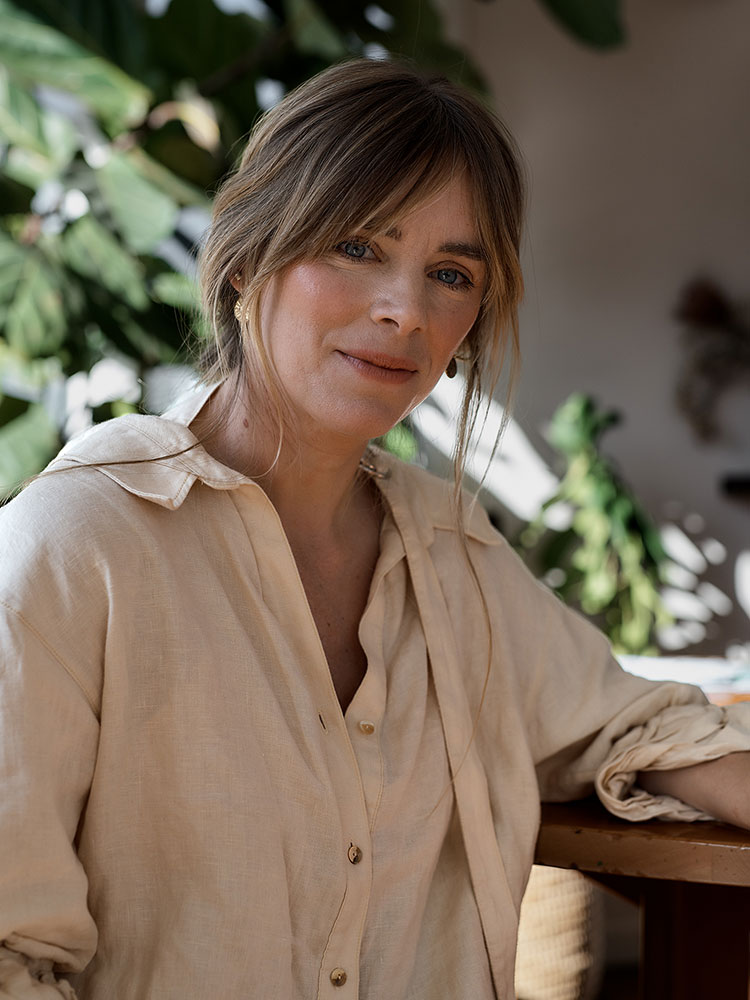
2020 was a year of chaos and genuine uncertainty. Why launch then?
Well, the plan wasn’t exactly to launch in the middle of a global pandemic. I’d started working on Videris in 2019 after leaving my role at Savage X Fenty and taking time to recover from burnout. The vision for Videris came from that space: I wanted to create a lingerie brand rooted in intention, comfort and emotional connection, with colour playing a role in how women connect with themselves and a focus on how lingerie can support the way they feel in their bodies.
By early 2020, we were preparing for launch. Our fabrics were on their way from China to Sri Lanka, and production was about to begin. Then Covid hit and Sri Lanka shut down a few weeks before New Zealand did.
What was really interesting about the lockdown pause is that the messages I’d been shaping around mindful dressing, colour psychology and caring for yourself from the inside out, suddenly those didn’t feel so abstract. They started to land. I think the stillness made people more open to rethinking how they consumed, how they felt, how they chose. When we finally launched in September 2020, it felt like women were ready. The world had shifted a little and in a strange way the timing felt right for the messaging and values of Videris.
What were some of the positives of launching a business/brand in that time of crisis?
That forced pause actually brought a lot of clarity. People were out of their usual rhythms, reassessing what mattered, and more open to discovering something new. There was a sense of intention in the air, even if it came from uncertainty and I think Videris really resonated with that.
There was also a real appetite for hopeful stories. The media, our customers, even industry peers, were excited for new voices doing things differently, so the environment felt really supportive and collaborative. And personally, I didn’t feel weighed down by expectations of what a business should look like. I wasn’t comparing Videris to a pre-Covid benchmark, so in some ways, that gave me permission to trust my own instincts and create a new kind of business.
What are some of the biggest challenges and lessons you’ve learnt over those five years?
So many! Manufacturing was a huge challenge in the early days, post-Covid disruptions meant not all workers returned right away, and when they did, there were quality inconsistencies. That impacted planning and inventory, which is tough when you’re a small brand.
But the biggest lesson has been about how I face obstacles and challenges, because they are constant! I’ve come to believe that difficulties aren’t barriers, they’re part of the process. I use the mantra "the obstacle is the way" often (Ryan Holiday's philosophy of stoicism). It's the idea that challenges aren’t detours from the path; they are the path. You can’t go around them, you have to go through them. And when you do, you often find they hold exactly what you need to grow. It's not easy but I try to remind myself in those moments, "this isn’t happening to me, it’s happening for me."
The hardest moments have often become the most transformational, which isn't to say it's a comfortable experience. It’s often very crunchy, but afterwards you get the benefits of PTG: post-traumatic growth. The idea that after stress or disruption, we don’t just recover we transform. And I can honestly say that’s been true for me. It’s not always immediate but absolutely there on reflection. I'm constantly seeking growth and transformation and I think anyone who’s launched a business in the past five years would agree that transformation hasn’t just been a theme, it’s been essential.
I’ve also learned the importance of building something values-driven. When things feel hard, and they often do, I come back to why I started Videris in the first place. If that still holds true, then I know I’m still on the right path. Now I am grateful for the extra time I had before launch to clarify what I wanted Videris to stand for, to pull all those loose, intuitive ideas from my head and shape them into something tangible. Without that, I think it would be incredibly hard to keep going. Values give you something to return to, a reason beyond sales or growth.
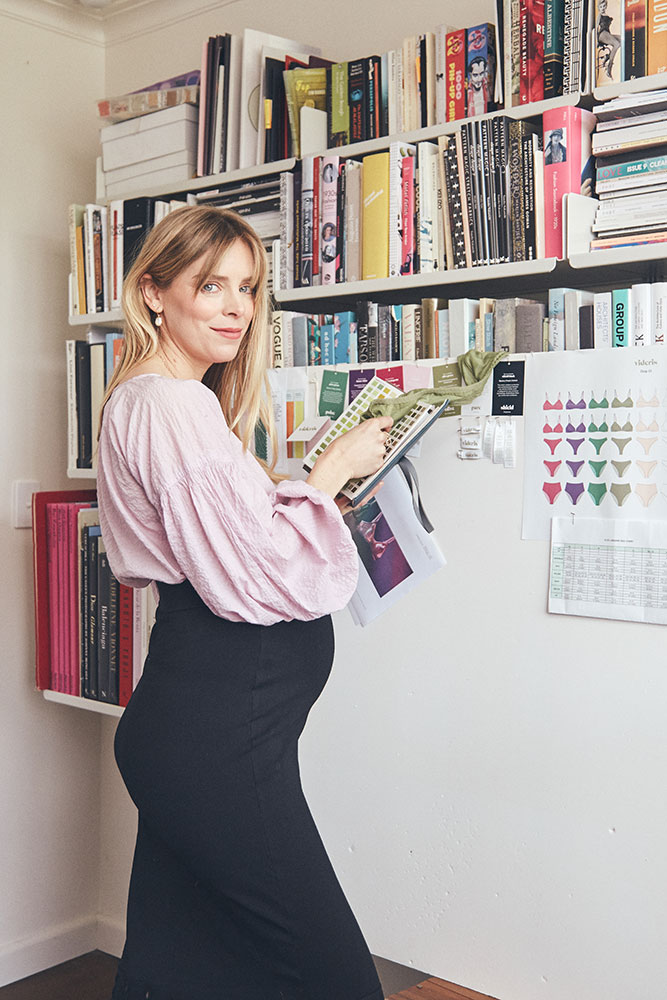
If you could go back and give your 2020 self one piece of advice before launching, what would it be?
Trust yourself more. I had deep experience in design, but less in areas like marketing or operations. So when someone with more experience in those fields told me, “this is how it’s done,” I often went along with it, even when it didn’t feel right.
I remember someone saying to me, “That’s Marketing 101,” in response to something I didn’t want to do. Later I thought, Well, I’m not doing Design 101. Videris wasn’t built the same way as other brands I’d worked on, I’d intentionally chosen to do things differently. So why should I follow a conventional marketing path if it doesn’t align with the values or vision? Just because something is standard doesn’t mean it’s right for your brand.
Looking back, I’d remind myself that advice is always filtered through someone else’s lens. And if you’re building something truly different, it’s okay if their lens doesn’t fit. Trust your instincts and stay anchored in your values, they’ll guide you when everything else feels uncertain. And you don’t always need to explain why something doesn’t feel right, the feeling alone is enough of a sign.
I heard an interesting quote a while back: "Everyone loves a girl with a vision, but they don’t always love it when that vision comes true." I’m not sure I always agree, but there’s some truth in it. As a woman, you’re often celebrated for having an idea, for dreaming big, but once that vision becomes real and starts to take up space, the support can shift. It’s something I’ve noticed at times, and it’s made me more aware of how important it is to stay rooted in your purpose regardless of the external noise.
Looking back on 2020 through to 2025, how have things changed? Where are you at right now, and looking ahead for another five years?
A lot has changed and yet the foundation hasn’t. The values Videris launched with still guide everything we do. The styles I started with are still core to the range. But I’ve changed, and the business has evolved with me.
In the early days, I had more people around me; contractors, agencies doing the things I didn’t yet know how to do. Over time, through necessity and curiosity, I’ve learned every part of the business. I now run our digital marketing myself, which is something I never would’ve imagined a year ago. But I’m part of a brilliant coaching programme and honestly, it’s been game-changing. Understanding what works and why has transformed not just our results, but my confidence in leading the business holistically.
Prior to launch I thought being stocked at Net-a-Porter or Matches was the dream. But after seeing how those wholesale models treated small brands during Covid, cancelling orders, delaying payments, it changed my perception of what scale and success look like. That shift in mindset made me even more committed to building direct relationships with our customers. That way, we tell our own story and grow on our own terms.
I remember during the lockdowns there was a moment when designers like Dries Van Noten proposed a new fashion calendar, one that better supported the creative process and reflected how people actually consume fashion today. It really resonated with me because I was already questioning the relentless pace I’d experienced in the fashion industry. But looking back now, not much has shifted at an industry level. The system largely went back to business as usual.
That’s why I’ve stayed committed to doing things differently with Videris. From the beginning, I chose an evergreen collection model and a slower pace. It's always been my vision to grow slowly and organically, to build something intentional rather than reactive. That’s not always easy, I have to remind myself often not to compare Videris to the perceived success of other brands. But I know why I’m doing it this way, and that keeps me grounded.
Looking ahead, I don’t have a rigid five-year plan, the last five years have shown me how unpredictable things can be. But I do believe we’re entering a new chapter. We’re listening closely to our customers, using real data to guide how we grow the range. And we’re in the process of rebalancing the collection, responding to what works, what women need, and how they want to feel.
And something I’m really excited about is The UnWired, a new series we’re launching soon that explores not just going wire-free in your lingerie, but living wire-free: stepping out of old expectations and into alignment with yourself. It’s part of a broader evolution for Videris, one that brings together comfort, autonomy, and quiet activism and reflects a deeper layer of feminism I’ve been weaving into the brand.
Ashley Roberts, John Connell and Pete Connell, founders of ByTheBottle
ByTheBottle's online store opened in December 2020
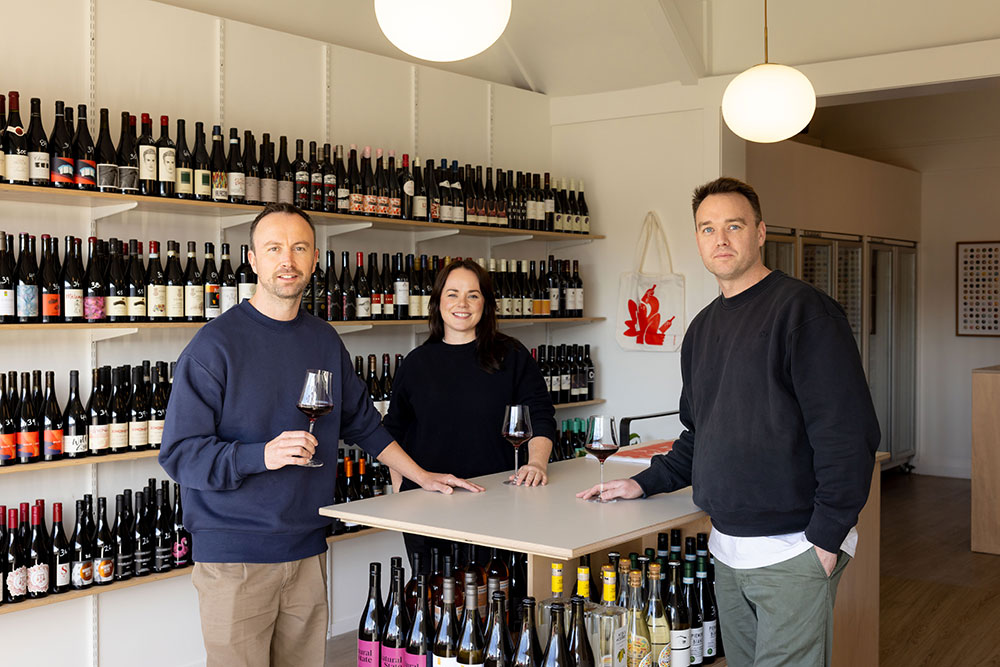
2020 was a year of chaos and genuine uncertainty. Why launch then?
2020 was chaotic for everyone, but it’s also when By The Bottle was born. After a decade living in Australia and the UK, we came back to New Zealand with a plan to launch our own wine retail business. We landed in Auckland in February… and by March, the country was in lockdown. Suddenly, we found ourselves back in Hamilton, living with our parents, no jobs, no house and a lot of time to think. It turned out to be a blessing in disguise, giving us a few solid months to refine the By The Bottle concept and build our website before launch.
What were some of the positives of launching a business during that time of crisis?
Time was the biggest gift. As a small start-up, we had the rare luxury of focusing entirely on building the business without the usual distractions. It also led us to Seachange, the incredible branding agency behind our look and feel. Amanda and Tim brought our vision to life better than we could have imagined. And, as luck would have it, launching an online wine business while everyone was stuck at home perfecting their sourdough starters and trying to make Zoom quizzes fun wasn’t the worst timing.
What are some of the biggest challenges and lessons you’ve learnt over those five years?
Where do we start? We’ve spent our careers in wine and hospitality, but turning that experience into a financially sustainable business was a whole new challenge. We didn’t even know how to use Xero at the start, so the learning curve was… steep. One of the biggest lessons? Truly knowing your market. After ten years away, reconnecting with the New Zealand wine scene from small producers to shifting consumer tastes was essential. Those early years were as much about building relationships as building the business.
If you could go back and give your 2020 self one piece of advice before launching, what would it be?
Don’t wait for perfection. Just start, figure things out, and tweak along the way. Mistakes will happen (ideally the cheap kind), but momentum matters more than having every detail locked in.
Looking back on 2020 through to 2025, how have things changed? Where are you now, and what’s ahead for the next five years?
The New Zealand wine landscape has shifted in exciting ways. More people are seeking out small-batch, independent producers and intentionally choosing certified organic wines – which is exactly the kind of wine we love to champion.
As for us, we now have a bricks-and-mortar store in Mount Eden, so we’re busier than ever. Looking ahead, it’s all about growing our reach with some exciting events planned for later this year and into next. We’re also keeping an eye on expansion opportunities for the years ahead. ByTheBottle was built to connect people with wines worth discovering, and the next five years will be about doing that on a bigger scale.
Chloe Zara, founder of CZE Hair
CZE Hair (then called Chloe Zara Hair) officially launched October 2020
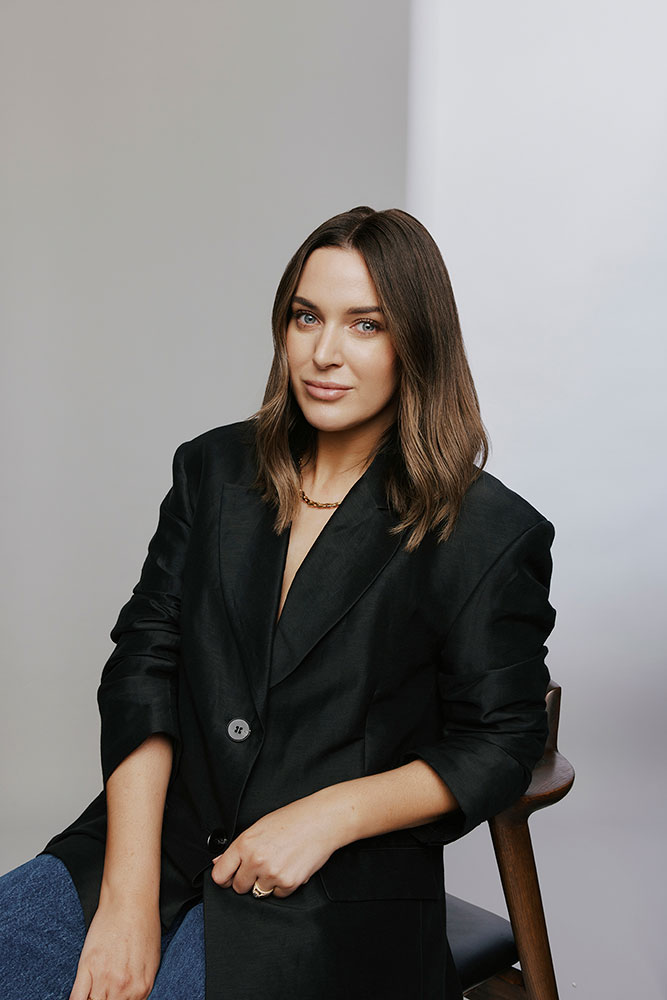
2020 was a year of chaos and genuine uncertainty. Why launch then?
2020 was undeniably a year of upheaval, but for me, especially with owning a salon, it was also a year of clarity. As a hairstylist with 17 years of experience at the time, I saw a gap in the market for hair and scalp care that truly prioritised scalp health, much like skincare does for the face. The idea for CZE Hair (Chloe Zara Hair) had been building for years, and the downtime of that global pause gave me the space to bring it to life. I believed people were starting to look inward, focus on wellness, ingredients and simplify their routines. It felt like the right time to create something meaningful, even amidst the chaos.
What were some of the positives of launching a business/brand in that time of crisis?
People were more open to rethinking their habits and routines in 2020. Self-care became essential, and that shift allowed a new brand like CZE Hair – a clean, New Zealand made range of haircare to be welcomed into people’s homes and daily lives. There was also a sense of connection and community forming online. People wanted authenticity, and they resonated with our founder-led, purpose-driven story. The crisis made us agile, resilient, and deeply intentional in everything we built from the start.
What are some of the biggest challenges and lessons you’ve learnt over those five years?
One of the biggest challenges has been building brand awareness in a saturated market while staying true to our values. As a founder with limited resources, I’ve worn every hat from product development, marketing, sales, logistics. It’s been incredibly rewarding, but also overwhelming at times. The biggest lesson would be to stay consistent with your mission and always listen to your intuition.
If you could go back and give your 2020 self one piece of advice before launching, what would it be?
Trust the long game. In the early days, it’s easy to feel like everything needs to happen overnight, but building a brand with integrity takes time. Every slow period, every challenge, is preparing you for what’s next. Stay focused on your purpose and don’t compare your journey to others.
Looking back on 2020 through to 2025, how have things changed? Where are you at right now, and looking ahead for another five years?
In five years, CZE has grown from a small range of four products to three ranges built on scalp-first, skincare-grade formulas that genuinely transform hair health. We’ve gone through a rebrand, refined our core message, and stayed committed to clean, conscious beauty. Right now, we’re focused on growing our community, expanding retail, and continuing to innovate with new products that serve real hair needs.
Looking ahead, I see CZE becoming a global brand that redefines how we care for our hair, rooted in purpose, backed by science, and always led by love and passion for creating beautiful hair.
Sara Higgins, founder of Hana
Hana opened on June 8, 2020
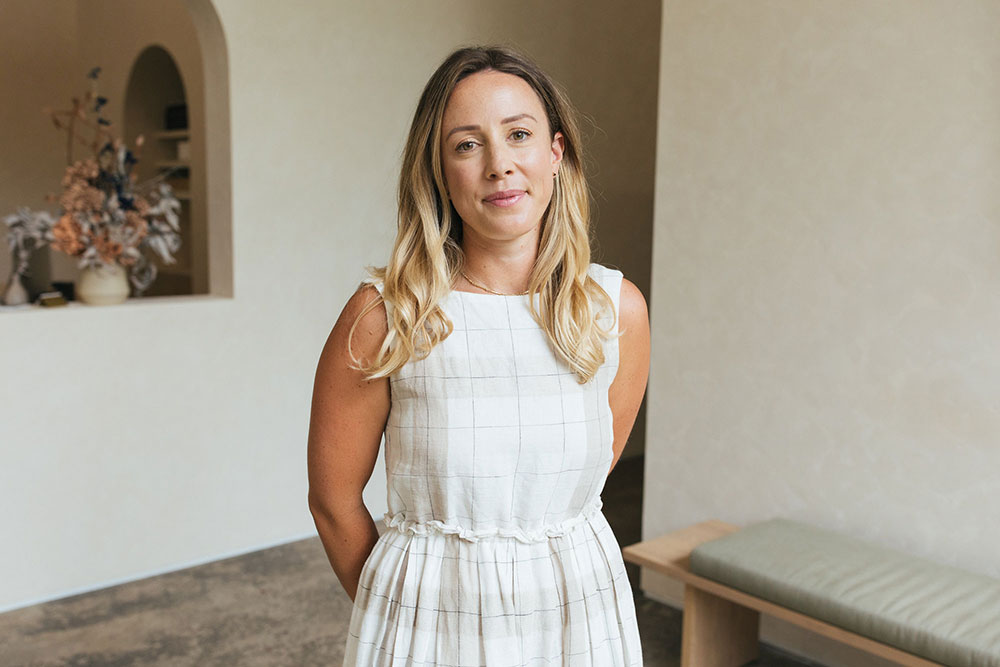
2020 was a year of chaos and genuine uncertainty. Why launch then?
The idea of Hana was born mid-2019. Once I came up with the business plan and found the space to lease, it was full steam ahead to create my vision. We were halfway through our fitout when the first lockdown hit in March 2020. So really we had no choice but to go ahead and launch!
What were some of the positives of launching a business/brand in that time of crisis?
The heightened focus on health and wellbeing. People were actively seeking ways to support their physical and mental health, which aligned perfectly with what we were offering. As New Zealand’s first dedicated infrared sauna studio, we brought something new to the wellness space, and the timing meant our concept really resonated. The response when we opened far exceeded my expectations, showing that there was a real demand for what we had created.
What are some of the biggest challenges and lessons you’ve learnt over those five years?
Learning to navigate constant change, especially launching Hana during the uncertainty of a global pandemic. I quickly had to adapt and make decisions without having all the answers, which taught me to trust my intuition and stay grounded in my vision. As the business has grown – expanding our Grey Lynn location, opening a second space in Parnell, and launching our online store – each phase has brought new complexities, from managing a larger team to maintaining the Hana brand across our locations.
Another challenge has been balancing business growth with motherhood. Having had my daughter five months ago, and my son in early 2023, life with two little ones is beautifully chaotic. I’m still learning how to set boundaries, prioritise the important things and be present for my children and the business. I am so grateful to the amazing group of women who keep Hana running day to day.
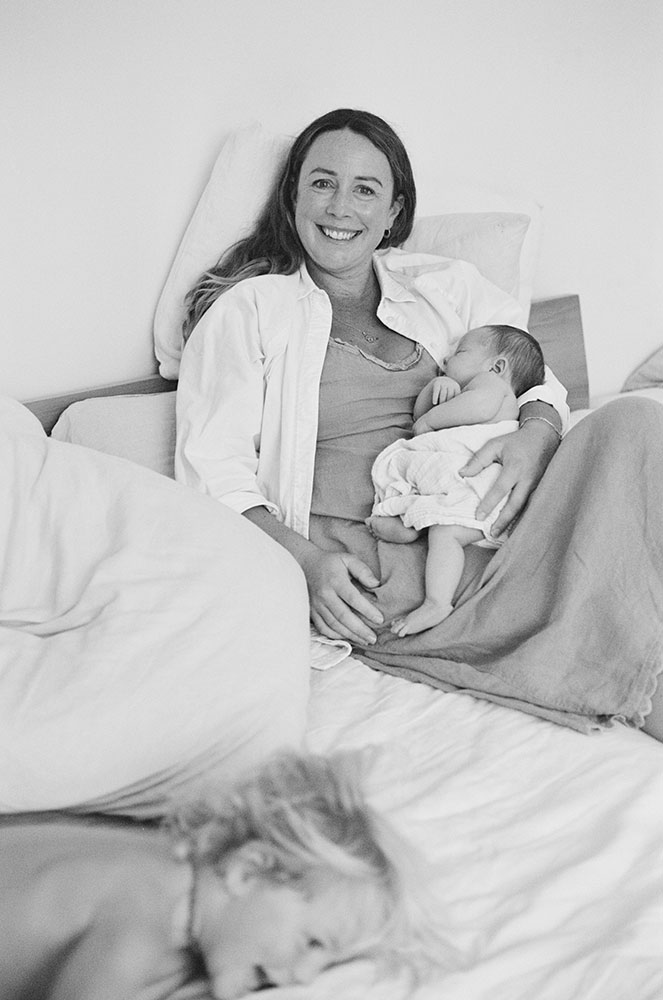
If you could go back and give your 2020 self one piece of advice before launching, what would it be?
To trust my gut and remember that what’s meant to be will happen. There will always be uncertainties and challenges, but having faith in the process and in my own intuition helps to stay grounded. Trusting that the right opportunities and outcomes will come in their own time is a powerful mindset to hold onto.
Looking back on 2020 through to 2025, how have things changed? Where are you at right now, and looking ahead for another five years?
Over the past five years, the wellness industry in New Zealand has evolved significantly, with many more options for people to invest in their health and wellbeing. Through it all, Hana remains committed to being a leader in the wellness space, with a strong focus on educating our clients and providing quality experiences. The last 12 months have been tough – like many small businesses around the country – and right now we are steadying the ship and building a stronger foundation. Looking ahead to the next five years, we’re focused on growing our unique Hana experience, with the goal of continuing to lead the way in New Zealand’s wellness industry while staying true to our values and mission.
.jpg)




